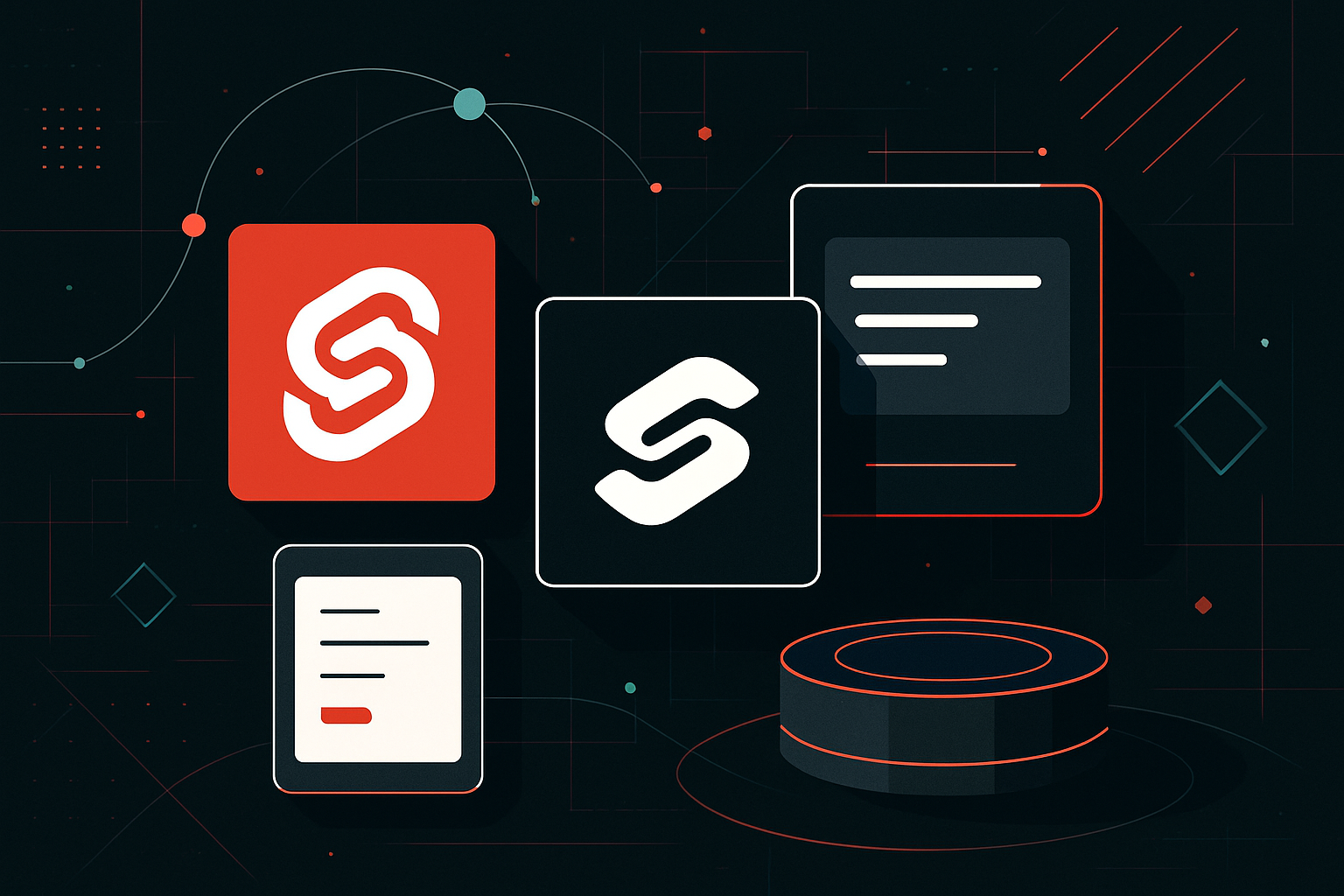Essential Tools for Freelance Web Developers

Essential Tools for Freelance Web Developers
Code Editors
Visual Studio Code
Visual Studio Code (VS Code) is a versatile, open-source code editor favored by many web developers. It supports a wide array of programming languages and frameworks through extensions. Key features include:
- IntelliSense: Provides smart code completions based on variable types, function definitions, and imported modules.
- Integrated Git: Built-in Git commands help you to manage source control directly within the editor.
- Extensions Marketplace: Enhance functionality with thousands of extensions like Live Server, Prettier, and ESLint.
Example: Setting Up Live Server
To set up the Live Server extension, follow these steps:
1. Open VS Code and go to the Extensions view by clicking on the square icon in the Sidebar.
2. Search for “Live Server” and install it.
3. Open your HTML file in VS Code.
4. Click on the “Go Live” button in the bottom-right corner.
Sublime Text
Sublime Text is a powerful, lightweight text editor known for its speed and customizable interface. It supports multiple programming languages and features:
- Multiple Selections: Make ten changes at the same time, not one change ten times.
- Command Palette: Access frequently used commands without navigating menus.
- Split Editing: Edit files side by side.
Version Control Systems
Git and GitHub
Git is a distributed version control system, and GitHub is a platform for hosting and collaborating on Git repositories. Together, they form a critical part of a modern web developer’s toolkit.
- Branching and Merging: Work on new features without affecting the main codebase.
- Pull Requests: Facilitate code review and discussions before merging changes.
- GitHub Actions: Automate workflows directly from your repository.
Example: Basic Git Commands
# Clone a repository
git clone <repository-url>
# Create a new branch
git checkout -b <branch-name>
# Commit changes
git commit -m "Commit message"
# Push changes to GitHub
git push origin <branch-name>
Development Frameworks
React.js
React.js is a JavaScript library for building user interfaces, particularly single-page applications.
- Component-Based Architecture: Build encapsulated components that manage their state.
- Virtual DOM: Efficiently updates the DOM to reflect changes in the application state.
- React Developer Tools: Debug React applications within your browser.
Example: Creating a Simple React Component
import React from 'react';
function Welcome(props) {
return <h1>Hello, {props.name}</h1>;
}
export default Welcome;
Angular
Angular is a platform for building mobile and desktop web applications.
- Two-Way Data Binding: Synchronizes data between the model and the view.
- Dependency Injection: Efficiently manage code dependencies.
- Angular CLI: Command-line tool for creating, managing, and deploying Angular applications.
Package Managers
npm
npm (Node Package Manager) is the default package manager for Node.js, allowing developers to share and reuse code.
- Thousands of Packages: Access to a vast library of open-source packages.
- Version Control: Manage dependencies with specific versioning.
- Scripts Automation: Automate tasks like testing and deployment.
Example: Installing a Package
# Install a package
npm install <package-name>
# Install a package globally
npm install -g <package-name>
Yarn
Yarn is an alternative package manager that offers faster performance and improved dependency management.
- Offline Mode: Install packages without an internet connection if they were installed before.
- Deterministic Installs: Ensure the same package version is installed across different environments.
- Workspaces: Organize code into separate projects within a single repository.
Debugging Tools
Chrome DevTools
Chrome DevTools is a set of web authoring and debugging tools built into Google Chrome.
- Elements Panel: Inspect and edit DOM and CSS.
- Console Panel: Log diagnostic information and run JavaScript.
- Network Panel: Analyze network activity to optimize loading times.
Postman
Postman is a collaboration platform for API development, offering tools for designing, testing, and monitoring APIs.
- Request Builder: Send various HTTP requests and view responses.
- Environment Management: Manage different environments for testing APIs.
- Automated Testing: Create and run automated tests with its scripting feature.
Task Runners
Gulp
Gulp is a toolkit for automating time-consuming tasks in your development workflow.
- Pipelines: Use Node streams to build automation pipelines.
- Plugins: A wide range of plugins to perform tasks like minification, concatenation, and image optimization.
Example: Basic Gulp File
const gulp = require('gulp');
const sass = require('gulp-sass');
gulp.task('sass', function() {
return gulp.src('src/scss/**/*.scss')
.pipe(sass())
.pipe(gulp.dest('dist/css'));
});
Webpack
Webpack is a module bundler for JavaScript applications, transforming modules into static assets.
- Code Splitting: Reduce load time by splitting code into smaller chunks.
- Loaders and Plugins: Extend functionality for tasks like transforming files and optimizing builds.
Summary Table: Tool Comparison
| Tool | Category | Key Benefit | Example Use Case |
|---|---|---|---|
| VS Code | Code Editor | Extensions Marketplace | Live Server for real-time preview |
| Git & GitHub | Version Control | Collaborative Development | Pull Requests for code review |
| React.js | Framework | Component-Based UI | Single-page application |
| npm | Package Manager | Dependency Management | Installing JavaScript libraries |
| Chrome DevTools | Debugging | Inspect & Debug UI | Analyzing network requests |
| Gulp | Task Runner | Automating Tasks | Sass compilation |
Conclusion
Selecting the right tools can dramatically improve your efficiency and effectiveness as a freelance web developer. Keep your toolkit up-to-date and well-organized to ensure a smooth and productive workflow.





0 thoughts on “Essential Tools for Freelance Web Developers”